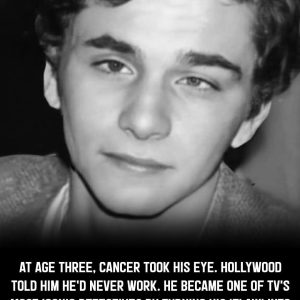The tension between the narrator and her future mother‑in‑law, Linda, had been simmering for years. Linda had always made it clear that she didn’t consider her son’s fiancée “good enough”—not wealthy enough, not refined enough, not from the “right kind” of family. Despite the constant disapproval, the narrator tried to stay polite for Alex’s sake, hoping time would soften the relationship. But everything changed the day before the wedding. The narrator returned from running last‑minute errands to find the wedding cake—an expensive, painstakingly saved‑for, three‑tier lemon raspberry cake—completely gone. Linda and her three friends sat laughing in the living room, their lips stained with raspberry filling, casually announcing they had eaten the entire cake because it “looked good.” When the narrator, horrified, demanded they pay for a replacement, Linda refused, mocking the cake and her taste. The cruelty and sabotage pushed the narrator to a breaking point.
That night, the narrator lay awake replaying every insult, side comment, and hostile gesture Linda had ever made. Linda cared deeply about appearances and social reputation, always wanting to seem elegant and flawless in front of others. The narrator realized this was the exact weakness she could target. At dawn, she called the bakery in desperation. They told her there was no way to replace such a detailed custom cake in time, but she insisted she didn’t need another custom cake—she needed a specific delivery. With a plan forming, she arranged for something entirely different to arrive at the reception: not a grand wedding cake, but a symbolic gesture designed to reveal Linda’s sabotage publicly without the narrator ever raising her voice.
On the wedding day, the ceremony unfolded beautifully. Guests gathered with excitement, and Alex looked at his bride with pure devotion. Linda arrived in an elaborate gold dress, chin raised high, radiating smug confidence as if she believed she had already ruined the big day. The ceremony carried on flawlessly, and for a moment, the narrator forgot the chaos and cruelty of the night before. But when the newlyweds entered the reception hall, there was deliberately no cake stand—an omission Linda pounced on. She loudly asked where the cake was, pretending innocence while clearly hoping to embarrass the bride in front of everyone. But the narrator remained poised, telling her that the cake was on its way and that she had arranged a “special delivery” just for her.
As the narrator finished speaking, the banquet doors opened and a cart rolled in—stacked with thirty cheap grocery store sheet cakes, each one labeled with a bright $7.99 price sticker. The room fell silent except for whispers and stifled laughs. Alex looked confused; Linda looked horrified. Taking the microphone, the bride calmly explained that the original custom cake had been eaten and that she made sure those responsible would have “plenty more today.” She gestured directly toward Linda and her friends. The guests reacted with shock and amusement. Linda exploded with indignation, accusing the bride of embarrassing her, but the bride responded evenly, reminding her that she had destroyed the original cake and refused to replace it. The public humiliation made Linda storm out of the reception, her entourage scrambling behind her.
Alex, who had been unaware of the cake incident until that moment, squeezed his wife’s hand and told her he was proud of how she handled everything. The energy in the room shifted as guests began enjoying the cheap sheet cakes, many finding humor in the situation and even appreciating the unpretentious, sugary dessert. Children especially loved it, and the moment became a shared inside joke that made the wedding feel more personal and authentic. As the celebration continued, the narrator realized that Linda’s sabotage had backfired spectacularly. Instead of ruining the wedding, it had given the couple a memorable story and had shown everyone—including Linda—that respect was not optional.
Later in the evening, Linda returned, subdued and embarrassed. She first apologized to Alex privately, then approached the bride with a stilted but genuine acknowledgment that she had behaved badly. It wasn’t a perfect apology, but it was the first step toward a more honest relationship. The wedding carried on with laughter, dancing, and joy, the sheet cakes becoming an unexpected highlight of the night. From that moment on, Linda stopped trying to sabotage anything involving the couple; she had learned that her attempts to undermine the bride only resulted in her own humiliation. The narrator walked away stronger, more confident, and with a clear message etched into the family forever: If you mess with her wedding cake, she will serve the consequences—publicly, and with perfect composure.




